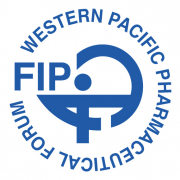US to retreat on innovative biologic medicines in Trans-Pacific Partnership trade pact Read more: http://www.smh.com.au/national/us-to-retreat-on-innovative-biologic-medicines-in-transpacific-partnership-trade-pact-20150727-gil5h2.html#ixzz3j9PJer99 Fol

Millions of patients with intractable diseases look set to escape punishing price hikes on innovative medicines, as the United States backs down on a key trade demand.
The US retreat on new biotech medicines won’t settle a raging debate about the cross-over of trade policy and public health but it will remove a major obstacle to completing a Trans Pacific Partnership, as ministers sit down in Hawaii for four days of make-or-break talks.
The TPP promises benefits for farmers and service providers in Australia but doctors, public health advocates and economists have been outraged by US moves to use it as a vehicle to extend drug company monopolies over expensive biologic drugs.
Those medicines are now at the front line of treatments for diseases including cancer, HIV/AIDS, rheumatoid arthritis, diabetes, hepatitis B and multiple sclerosis.
The original US proposal, as set out in texts leaked as recently as May, would have resulted in a “devastating impact on global health”, medical humanitarian organisation Medecins Sans Frontieres said on Friday.
US Trade Representative Michael Froman had sought to impose a lengthy 12-year “exclusivity period” over the biologic clinical data submitted to agencies like Australia’s Therapeutic Goods Administration, on top of complex rules and procedures governing patents.
But Fairfax Media understands Mr Froman is poised to reduce his demand to seven years in order to seal a landmark TPP deal with Australia’s Trade Minister Andrew Robb and 10 other counterparts in Maui this week.
The shorter period of exclusivity will enable cheaper generic drugs to reach the market more quickly.
Mr Robb told Fairfax he wanted the data exclusivity period to be trimmed further, to five years, in line with Australia’s existing laws, while some countries wanted no exclusivity period at all.
“A lot of issues have been resolved in the last few months; we are really down to the really difficult ones,” Mr Robb said.
“Biologics is still outstanding,” he said. “You’ve got to set a balance somewhere between people getting a return on innovation on investment and enabling competition to bring prices down for the rest of the community.”
Any US-imposed extension of Australia’s pharmaceutical monopoly laws would invite a fierce debate, given the public health and budget implications. And it may also require legislative changes, with a hostile Senate, allowing Mr Robb to argue that he couldn’t extend the five-year exclusivity period even if he wanted to.
“Seven years is still a big win for big pharmaceutical companies,” said Judit Rius, the US country manager for Medecins Sans Frontieres. “They are opening the door to a completely different type of monopoly protection and they will just keep pushing at the national level.”
Biologic drugs include any therapy derived from biological sources including vaccines, anti-toxins, proteins, and monoclonal antibodies.
They are among the most exciting developments in modern medicine but also the most complex and expensive.
Only about 64 biologic medicines are currently included in the Pharmaceutical Benefits Scheme but they include five of the 10 most expensive. Biologics accounted for one quarter, or $2.3 billion, of the cost of the PBS in 2013-14.
Single injections can cost thousands of dollars.
“Why would our government agree to any extension on data monopolies when even one year’s delay for some of these drugs can cost hundreds of millions of dollars to the PBS,” said Dr Patricia Ranald, convener of a fair trade network called AFTINET.
Biologic exclusivity periods add a layer of intellectual property protection that is much stronger than the traditional patent system.
Biopharmaceutical companies, which help fund the election campaigns of some key US congressmen, say the additional protections are necessary because generic copies known as “biosimilars” do not exactly imitate originals, making patents less effective.
The Obama administration’s TPP argument closely echoes the industry position but, awkwardly, contradicts its repeated internal attempts to reduce the data exclusivity period from 12 to seven years in order to encourage biosimilars and trim billions of dollars from the US budget deficit.
Respected Australian economists and trade law experts argued in a report to IP Australia that the five-year data exclusivity period is adequate.
Another controversial public policy question raised by the TPP involves an investor-state dispute settlement clause that would enable corporations to sue governments.
A draft text leaked last year shows that Australian negotiators have sought to stop the clause from interfering with the PBS, Medicare Benefits Scheme, Therapeutic Goods Administration and the Office of the Gene Technology Regulator.
“It begs the question as to why all the other institutions aren’t named,” said Dr Ranald, suggesting that general provisions to protect policy sovereignty were ineffective.


